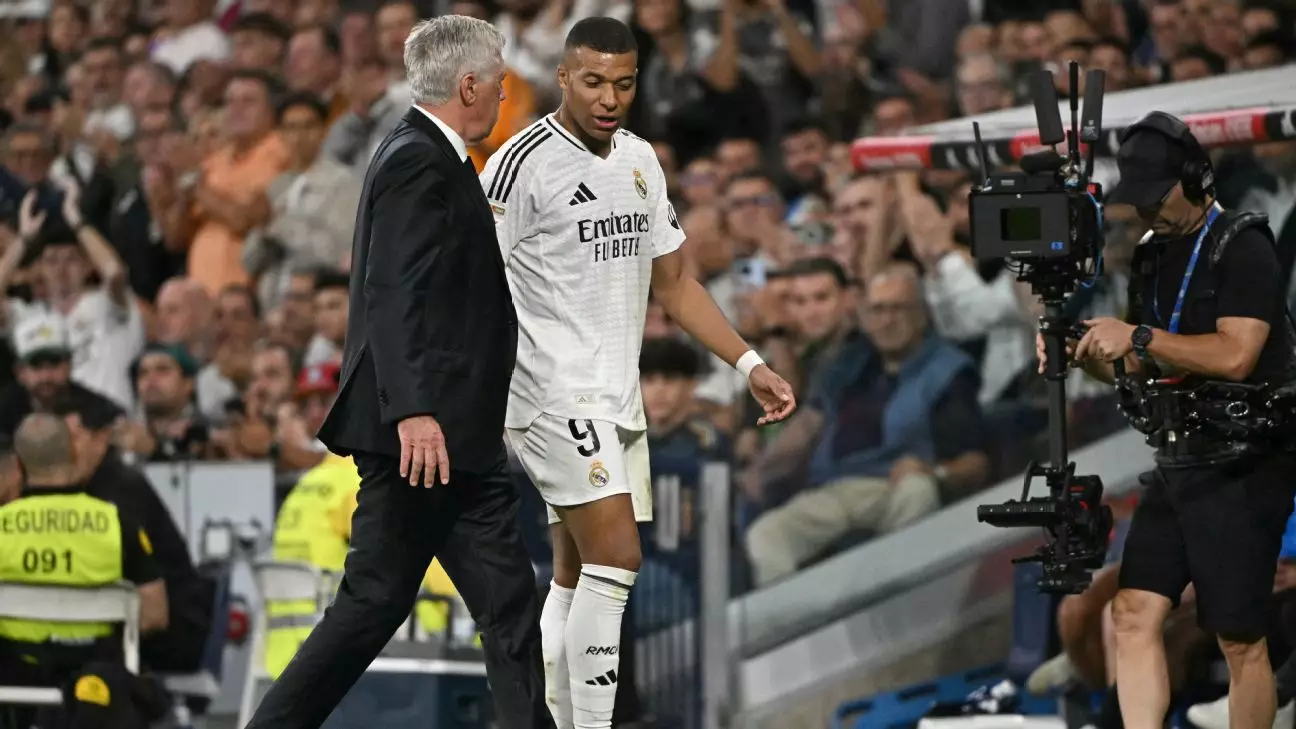In the world of football, few issues generate more heated debate than the role of referees and the interpretations of their decisions. Recently, Real Madrid has found itself at the center of discussions surrounding officiating in Spain’s LaLiga, following strong comments from both Carlo Ancelotti and LaLiga president Javier Tebas. The clash has exposed underlying tensions within the league, raising questions about accountability, transparency, and how clubs advocate for fairness in officiating.
The spark for the latest controversy began with Real Madrid’s recent setback against Espanyol, a match marred by questionable officiating. A pivotal moment arose when Espanyol defender Carlos Romero fouled Madrid star Kylian Mbappé. The decision not to issue a red card for that foul became a focal point for Madrid, especially since Romero later scored the winning goal in that game. In an effort to seek accountability, Madrid filed a formal complaint with the Spanish Football Federation (RFEF), pointing to a perceived pattern of inconsistency in referee decisions.
This situation led Tebas to remark that Madrid had “lost their minds” in crafting a narrative suggesting victimhood. Such remarks indicate a wider concern: how clubs express their grievances without being perceived as whiners or attempting to exert undue influence on officiating. Ancelotti’s response emphasized a desire for improvement rather than a vendetta against the referees—something that highlights a crucial aspect of sports management: the balance between competitive integrity and the emotions that come tied to winning.
Ancelotti’s insistence on obtaining the audio recordings from the match officials underscores the need for transparency in refereeing. “We’ve asked for an explanation of what happened,” he stated, pointing to the lack of access to records that could clarify previous contentious decisions. Greater transparency would not only bolster accountability among match officials but also provide clubs an opportunity to better understand the complexities of officiating.
However, Madrid’s call for audio recordings raises an important question surrounding league dynamics. If clubs can scrutinize referees’ decisions through audio transparency, does it alter the power balance between the clubs and match officials? Ancelotti’s comments reflected a sense of frustration at a system now seen as favoring Real Madrid while simultaneously affirming that the club’s intentions were purely to unveil the truth behind match decisions.
With impending matches against major rivals like Atlético Madrid, the emotional stakes are naturally amplified. Atlético’s media tactics have hinted at a narrative shift: accusing Real Madrid of pressuring referees through their platforms, including the club’s own media channel. Coach Diego Simeone’s pre-match words signify the intricate dance of psychology at play in sports rivalries: focusing solely on the game while leveraging outside controversies to sidestep potential weaknesses from his own side.
As tensions continue to rise with such matches on the horizon, the narrative surrounding referees becomes even more critical. While Ancelotti maintains that Madrid is not exerting undue pressure, the public perception remains key. In a high-stakes environment like LaLiga, perceived favoritism—whether true or not—can sway how teams and supporters react.
Beyond the political nuances surrounding officiating, Ancelotti is grappling with maintaining a balanced squad amid injuries. His front line—comprising superstars like Mbappé and Vinicius—has been noteworthy, scoring an impressive amount of goals. Yet, the glaring vulnerability in defense poses a challenge that he must confront.
This internal struggle reflects a larger theme in football: success is not solely defined by attacking prowess, but rather by achieving cohesion between offense and defense. Ancelotti’s recognition of a lack of balance offers insight into strategic management within a football club—highlighting that every successful team must adeptly navigate tactical decisions that accommodate both offensive flair and defensive stability.
Real Madrid’s recent requests regarding officiating serve as emblematic of the larger complexities of competitive sports and the nuances that come with decision-making. The issues raised by Ancelotti tap into a broader conversation about transparency, accountability, and the psychological games played in high-stakes rivalries. As LaLiga evolves, it will be crucial for stakeholders, from clubs to referees, to engage in honest dialogue focused on improving the integrity of the game—all while navigating the inherent emotions of one of the world’s most celebrated sports.

Leave a Reply